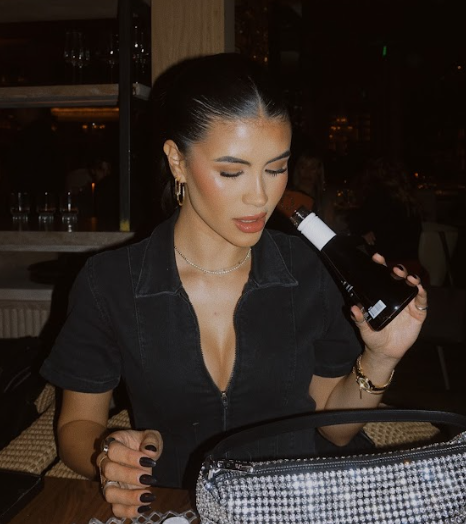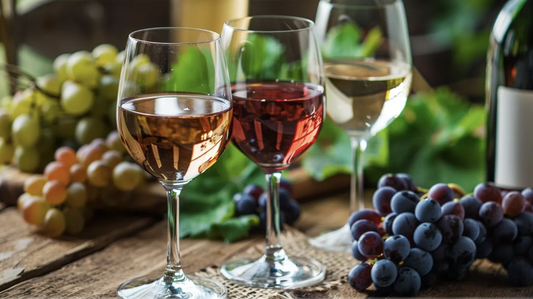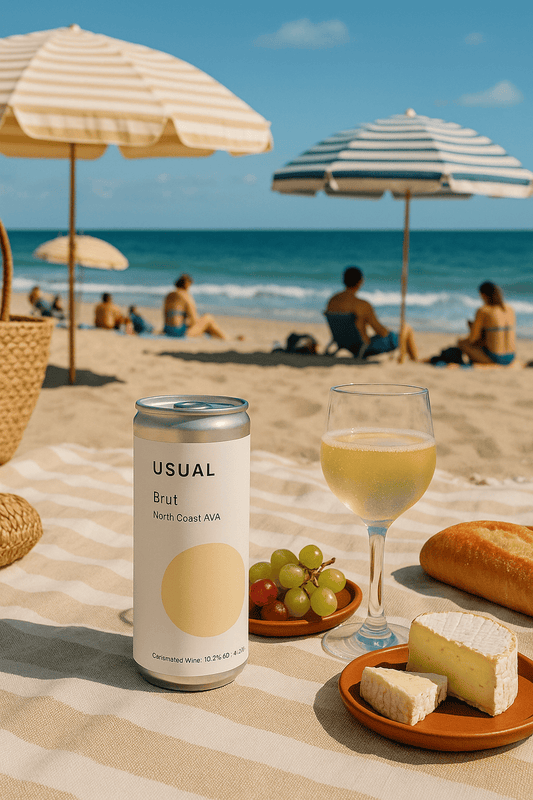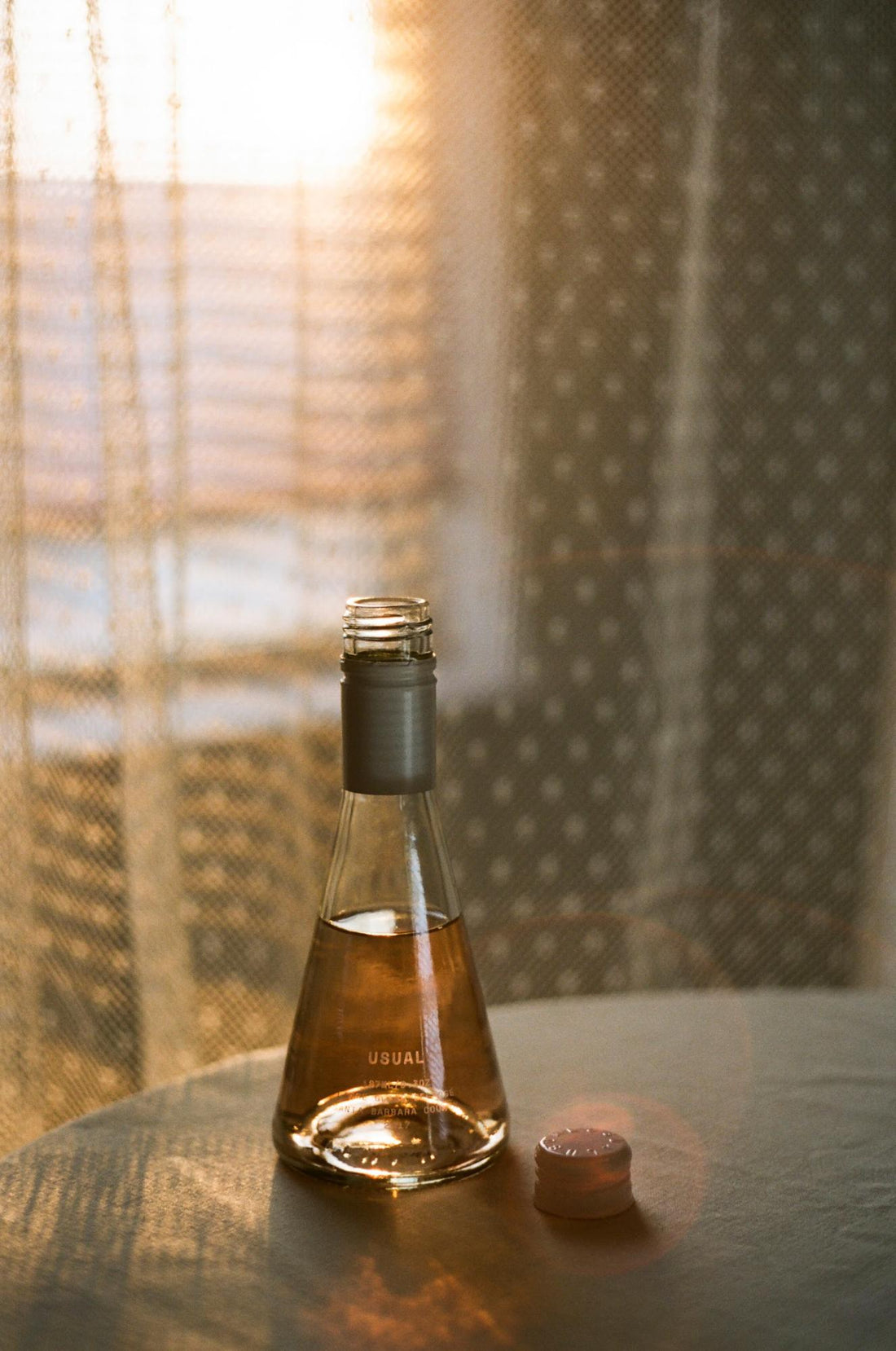
Clean Wines: Exploring the World of Clean Crafted Wine
McKenzie HaganWhen you hear the word wine, you probably imagine cozying up with a glass of Chardonnay while binging Netflix, raising your glass to your BFF's new signing bonus, or toasting your first night out in weeks (months?) with your partner.
Here's what you probably don't picture: Your gym membership, organic food, your daily B complex vitamin, your curated skincare routine, or anything else wellness related. Because tally up the grams of sugar, alcohol content, and chemical additives, and that bottle of red suddenly earns the title of One Of These Things Is Not Like The Other next to the aforementioned wellness products.
That is, until clean wine came along.
At face value, clean wine falls under the too-good-to-be-true variety, fitting your love of wine into your otherwise fit lifestyle. Made from organic grapes with no added sugars, colors, or fillers, this new wine trend offers everything you love about wine, while stripping away everything you don't (yes, including hangovers).
Below, we share exactly what clean wine is, how it's made, and why — contrary to popular belief — it's not too good to be true.
What Is Clean Wine, Exactly?
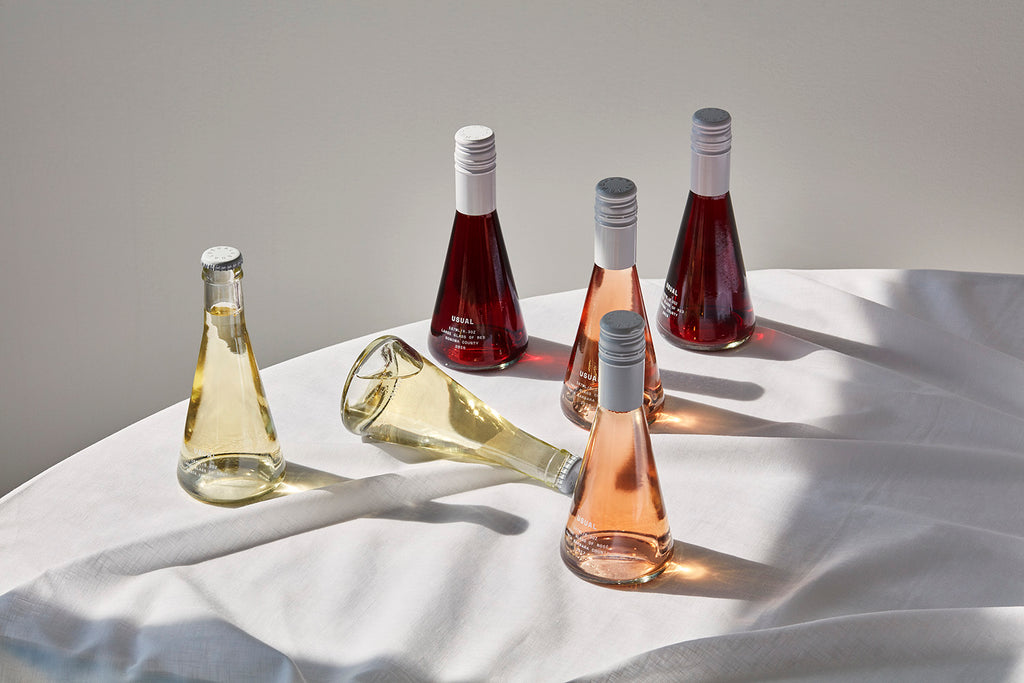
Clean wine is wine made from natural grapes, without any added sugar, sulfites, or preservatives. You'll typically find clean wine is harvested from organic or sustainable vineyards, farmed without pesticides or harmful chemicals.
It's important to note that the term "clean wine" is not regulated by the FDA, and therefore you should expect some variance between clean winemakers. (Sidenote: Wine, even clean wine, is alcohol and therefore regulated under the ATF, or Bureau of Alcohol, Tobacco, Firearms, and Explosives.) Before buying a clean bottle of wine, do your research to differentiate between a trusted clean wine company, and those who simply have a clever marketing team.
Even with no government-regulated definition to reference, here's what you can expect from the clean wine industry:
Clean wine sources grapes from vineyards who abstain from the use of synthetic pesticides and chemicals. During the winemaking process, clean wine companies allow the grapes to speak for themselves, rather than add sweeteners, sugars, additives, or sulfites. This results in a cleaner wine for you (with a better taste, if we do say so ourselves), and less headaches.
The Difference Between Clean Wine and Conventional Wine
So, what's the difference between clean wine and conventional wine? Would you even notice it at a wine tasting? The difference in a word: less. Less sugar, less additives, and less ingredients no wine lover was ever meant to pronounce.
"But isn't wine just...grapes and yeast?" you ask? In theory, yes. Unfortunately, any sommelier will warn you that your conventional glass of wine is filled with chemicals. There are over 60 ingredients conventional winemakers can include in their wines, without having to legally disclose as much on their labels.
These include, but are not limited to, the following:
- Acetaldehyde: Acetaldehyde can occur naturally during the fermentation process, but can also be used to manufacture other chemicals (like ethanal). Fun fact: It also causes a headache, stomach upset, and the dreaded hangover.
- Copper sulfate: Copper sulfate is used to remove wine mercaptans, which can give your wine a particular odor. While usually harmless, in larger amounts it can damage your blood cells, liver, and kidneys.
- Gelatin: Did you think all wine is vegan? Think again. Gelatin is a thickening agent made from hydrolyzed collagen, extracted from the connective tissues of animals.
- Potassium sorbate and potassium metabisulfite: These two additives are used to help yeast ferment your wine. Both are used to prolong the shelf life of a number of foods, and can be a skin irritant for some people.
- Milk products: Shockingly enough, regular milk and half-and-half are allowed to be used as filling agents for wines. You will also find casein (a milk protein) on the approved list.
- Sulfites: Sulfites are a preservative, and if you’re prone to allergies, they could be an underlying cause of a grueling hangover (besides the alcohol content, of course). Sulfites including sulfur dioxide, potassium bisulfite, sodium bisulfite, and sodium sulfite can also gravely trigger asthma in some people. (Note: Even organic wines are allowed to have up to 100 ppm of sulfites.)
- Albumen (egg whites): Egg whites are commonly used as a fining agent for wines (in other words, it removes unwanted elements from wine that could give it a hazy look). And while it may appear to be one one of the least harmful additives on this list to some, that is not the case if you follow a vegan diet.
- Mega purple: Mega purple is a grape concentrate added to wine to give it a more aesthetically pleasing (and sellable) color. The color additive is made by soaking grapes in an extremely high amount of residual sugar, transforming a light, red-colored wine to one with a deep purple color.
These additives are left off clean wines. Instead, you'll find clean varieties are natural wines that allow the grapes to speak for themselves.
While conventional wines use chemicals to enhance the color, aroma, taste, or sweetness of a wine, clean wines are made from yeast and sustainably farmed grapes. Some clean varieties are also organic wine, but that’s not a requirement. Lastly, the only sugar you'll find in clean wine is residual sugar, or sugar found naturally in grapes leftover from the fermentation process.
Selecting a Clean Wine: How Do You Choose?

Unfortunately, many clever marketing teams capitalize on the fact that "clean wine" is an unregulated term. They'll throw a number of buzzwords into a single marketing campaign, advertising their wines as paleo, keto, low-carb, and gluten-free, leaving many wine lovers scratching their heads.
If you'll allow us to be your clean wine mentors, we recommend searching for a clean wine that offers the following:
- Sourcing: Search for a wine that was made from a pesticide-free farm (note: the farm may not yet practice organic farming, as it typically takes 3+ years to earn an organic label). Look for wines that come from organic, sustainable, or biodynamic farming practices.
- Hand-picked: Search for wines that were made by hand-picking grapes off the vine. Some conventional growers use machinery for harvest, which can alter the wine's chemistry.
- Lab test: Lab testing helps ensure that every time you drink wine from one clean wine company, each batch is of the highest quality.
- No sugars or additives: As you learned above, the most important attribute of a clean wine is being free from sugar and chemicals.
- Delicious: A clean bottle should deliver the same delicious wine you come to expect from your favorite glass of Cabernet Sauvignon or Pinot Noir. A clean wine offers the flavors you love, made without harmful additives.
Choose a Clean Wine That Fits into Your Lifestyle
Wine has been our confidant through late nights at the office, celebrations, breakups, and the best movies and novels on record. But what if you love wine, but hate the sugar, additives, and hangovers that go along with it?
Clean wine seeks to strike a compromise — offering your must-have glass of Sauvignon Blanc or Syrah, minus the drawbacks of conventional wines. Clean wine is typically produced on sustainable farmland, created in small batches, lab tested for quality, and contains zero chemicals, added sugar, or additives (yes, even those marked "generally safe" for consumption by the FDA).
Unfortunately, "clean wine" is not a government-regulated term, so it's important to do your research before purchasing a bottle of clean white or red wine. Usual Wines is made without added sugars, concentrates, colorings or flavorings. Sourced from farms across California, it can be enjoyed a la carte in individual bottles, so you never have to choke down stale, re-corked wine. Instead, you enjoy the freshest sip of wine, each and every time.





